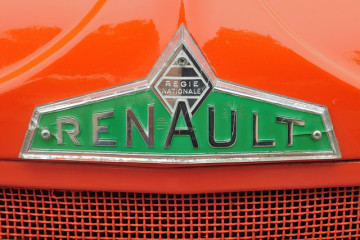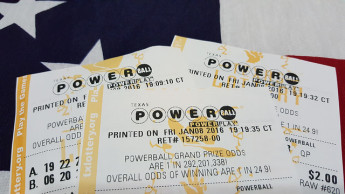By Peter Ward January 15, 2016
Al Jazeera America to Close
Al Jazeera America, the U.S. network of the Qatar-based media empire, announced on Wednesday it will shut down by April 30, blaming poor business conditions for media companies.
Al Jazeera America Chief Executive Al Anstey said in a memo to employees the decision was driven by “the fact that our business model is simply not sustainable in light of the economic challenges in the U.S. media marketplace.” He added, “I know the closure of AJAM will be a massive disappointment for everyone here who has worked tirelessly for our long-term future.”
The New York-based network launched in 2013, but has struggled to build an audience in the U.S. Al Jazeera paid $500 million for Al Gore’s Current TV for distribution in the U.S., and hired 700 staffers for 12 U.S. bureaus, as it looked to take on the likes of CNN and Fox News.
But problems began before the channel was launched, when AT&T, a major cable operator, dropped the channel from its lineup over a contract dispute. Al Jazeera America’s distribution never fully recovered, and was available in 64 million homes as of Wednesday, around a third less than its major rivals.
The network is yet to reveal how many jobs will be lost as a result of the decision.
Oil Prices Below $30

Oil pump jack in West Texas, between Seminole and Andrews. © Paul Lowry
Oil prices continued to decline this week, as both Brent crude, the international benchmark, and the U.S. benchmark slipped below $30 for the first time since 2004 and 2003 respectively.
Brent crude was trading as low as $29.96 on Wednesday, before settling at $30.48 a barrel on the New York Mercantile Exchange. Oil prices have fallen 70% in the past 15 months.
Oversupply is the main reason for oil’s fall. Commercial supplies of U.S. crude oil and refined products, such as gasoline, increased by 10 million barrels in the week ending January 8 to a record high of 1.3 million barrels, the U.S. Energy Information Administration revealed on Wednesday. A warmer winter has contributed to decreased demand for refined products such as heating oil and diesel fuel.
Those crude stockpiles are expected to grow further in the coming weeks, as oil refiners slow down production for annual maintenance, meaning oil prices could still have some way to fall.
The implications of low oil prices are felt far and wide. This week the Russian Prime Minister Dmitry Medvedev warned that the decreasing prices could lead the country to revise its budget for 2016. Russia’s government relies on taxes of oil and gas for around half of its income, and the country has ordered government departments to cut spending by 10% in response to the oil price decline.
Renault Offices Searched, Shares Plummet

Renault tractor. ©Gilles Péris y Saborit
Shares in the French automaker Renault dropped by more than 20% on Thursday, after the company revealed government officials had searched its offices as part of an investigation into its vehicles’ emissions.
French fraud investigators searched several company facilities, including the company’s headquarters, but found no evidence of wrongdoing. Despite this, the intraday decline of 23%, the biggest since January 1999, wiped out $6.3 billion of market value.
The searches follow on from the Volkswagen emissions scandal in September last year, when it was revealed 11 million cars with diesel engines had software installed to produce false emissions levels during testing. The French Environment Ministry has since launched a probe into 11 French car models to check for any fraudulent testing.
Shares in the company did recover by mid-afternoon trading, when they were only 10% down. “The continuing investigation has not produced any evidence of the presence of cheating software on Renault vehicles,” the company said in a statement. “For Renault, this is good news.”
Sexism Rife in Silicon Valley
Silicon Valley StartupYard. ©Petr Ocasek
A survey released on Monday revealed 60% of women working in Silicon Valley experience unwanted sexual advances.
According to results of the survey, called Elephant in the Valley, two thirds of the women who had experienced harassment say these advances came from a superior.
The survey was conducted by seven women, one of whom testified during the Ellen Pao v. Kleiner Perkins trial last year. Pao’s suit against the venture capital firm for gender discrimination was eventually dismissed. Despite the verdict, the case brought up numerous stories of gender inequality in venture capitalism and Silicon Valley.
“The inspiration for this survey came out of the incredible conversation from the Ellen Pao and [Kleiner Perkins Caufield & Byers] trial. What we realized is that while many women shared similar workplace stories, most men were simply shocked and unaware of the issues facing women in the workplace,” wrote the survey’s authors.
According to the survey, 90% of the 220 women interviewed had witnessed sexist behavior at company off-sites and/or industry conferences, and 87% of them had heard demeaning comments from colleagues. Of the women who said they were harassed at work, 39% said they didn’t report it because they didn’t want it to negatively impact their careers.
Powerball Prompts Odds Graphics

Powerball tickets. ©Wil C. Fry
The Powerball lottery jackpot reached an estimated $1.6 billion ahead of the drawing on Wednesday night, prompting discussions on both the odds of winning and the math behind buying all of the possible tickets.
The jackpot was the world’s largest ever, and offered punters the chance for a mega-windfall at odds of 1 in 292.2 million. The Wall Street Journal produced a graphic attempting to illustrate exactly how long those odds are. Beginning with a simple illustration of 1 in 2 odds, the graphic goes on to show 292.2 million dots, encouraging readers to scroll down or skip ahead, to reveal how one dot among the millions represented the chances a single ticket has of winning.
The Atlantic also dived deeply into the statistics, examining the wisdom of buying every single combination of numbers to ensure winning the jackpot. There are more than 292 million possible Powerball tickets, and to buy them all would cost more than $584 million. Putting aside the obvious logistical difficulties in filling out and buying every possible combination of numbers prior to the draw, the article concluded that the plan to make hundreds of millions in profit from a half billion investment would collapse should other people select the same numbers, resulting in a shared jackpot.
Gizmodo and Time magazine also reported on a viral Facebook post shared by 800,000 people that falsely claimed that if the entire population of the U.S. shared the Powerball jackpot equally it would eliminate poverty, providing a $4.33 million windfall to every American. The math was wrong on two counts, and factoring in the correct population figures for the U.S., each person would in fact receive just $4.09, not even enough for an expensive latte.
On Thursday it was revealed that there were at least three winning tickets for the jackpot.
This entry was posted on Friday, January 15th, 2016 at 5:03 pm. It is filed under Week in Review and tagged with Al Jazeera America, falling oil prices, Powerball, Renault, Silicon Valley sexism. You can follow any responses to this entry through the RSS 2.0 feed.
Comments are closed.
